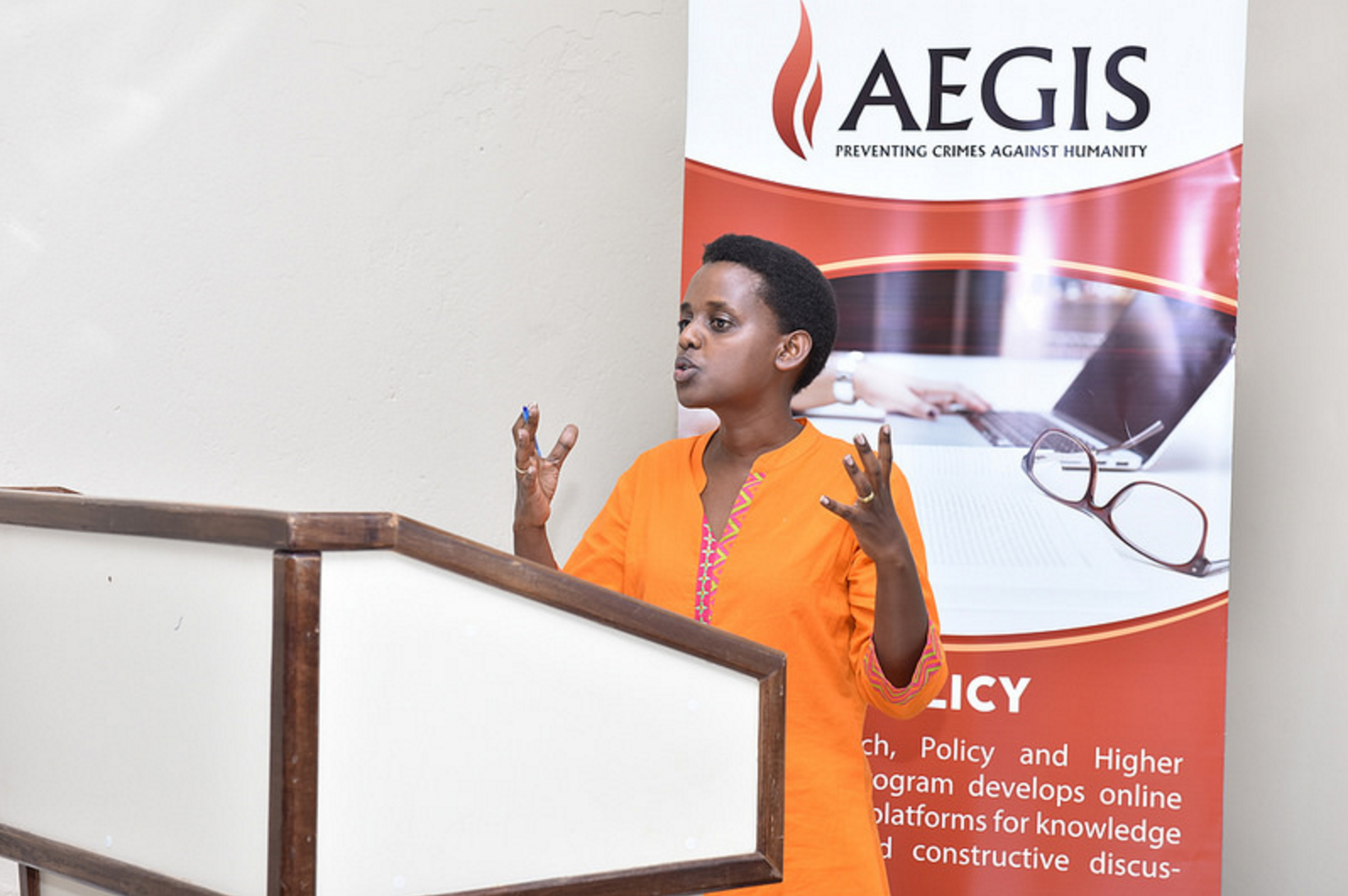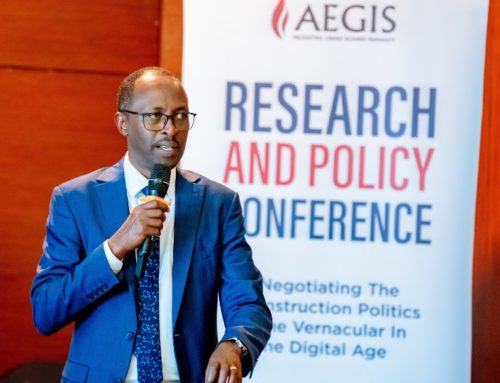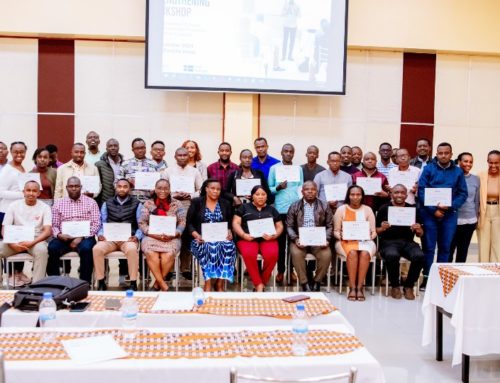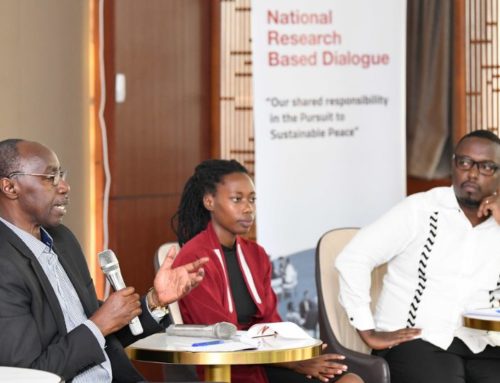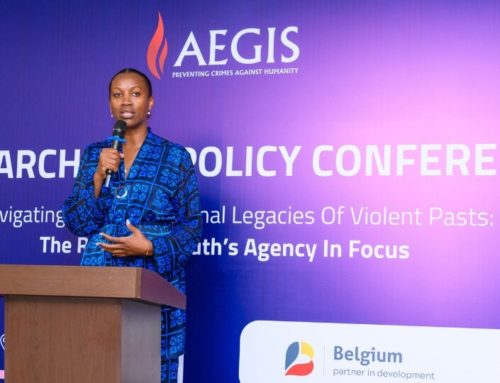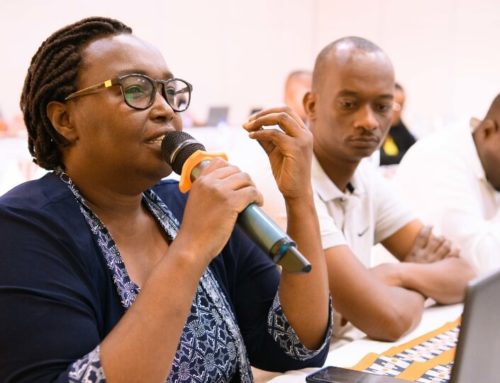Conference hosted by Aegis Trust programme in Research, Policy and Higher Education
Umubano Novotel Hotel, Kacyiru, Kigali
Wednesday, 27 July 2016
The conference will showcase the work of 10 Rwandan researchers who over the last 18 months have taken part in the Aegis Trust Research, Policy and Higher Education (RPHE) programme, funded by the UK Department for International Development (DFID). The programme, which provides small research grants and expert advice and training to researchers, is designed to bolster the Rwandan research community and to increase its voice in international academic debates and domestic policymaking. A second cohort of authors is currently working on a new set of projects which will be showcased at a similar conference in 2017.
The ten presentations across the day will highlight the main findings of the researchers’ projects and allow them to gather final feedback before they submit their work to peer-reviewed journals.
Registration is free of charge but you must register with your name and affiliation by emailing Agnes Safari <Agnes.Safari@aegistrust.org.rw>.
CONFERENCE PROGRAMME
8:30am – Registration
9:00am – Welcome (Sandra Shenge, Aegis Trust)
9:05am – Opening remarks (Phil Clark, Aegis Trust and SOAS)
9:15-10:30am – Inter-Generational Challenges after the 1994 Genocide against the Tutsi
‘Living under the shadow of guilt and shame: A qualitative study of the tainted lives of descendants of génocidaires in Rwanda’
Theoneste Rutayisire (University of Amsterdam) and Annemiek Richters (Leiden University)
‘Youth Connekt Dialogues: unwanted legacies, responsibility and nation building’
Richard Benda (Luther King House, Manchester)
10:30-11:00am – Coffee break
11:00am-12:45pm – Questioning Post-Genocide Identities
‘Is transcending social classifications through Gir’inka Munyarwanda a means for social cohesion?’
Alice Karekezi and Lonzen Rugira (Centre for Conflict Management, University of Rwanda)
‘Renegotiating normality in post-genocide Rwanda: the case of Orchestre Impala’
Rafiki Ubaldo (journalist and photographer) and Helen Hintjens (University of Erasmus Rotterdam)
‘“Am I Batwa or ‘HMP’?”: Examining the issues of the ‘Historically Marginalized Peoples’ label and its implications for the Batwa of Rwanda’
Richard Ntakirutimana (African Initiative for Mankind Progress Organization) and Bennett Collins (University of St. Andrew’s)
12:45-1:45pm – Lunch
1:45-3:30pm – Remembering and Teaching the Genocide
‘Remembering the humanity: accounting for resistance to genocide in Rwanda’ Ernest Mutwarasibo (University of Rwanda/University of Gothenburg) and Glorieuse Uwizeye (US Embassy to Rwanda)
‘Teaching genocide in a post conflict society: the educational experiences of Rwandan secondary school history teachers’
Jean Léonard Buhigiro and Johannes Wasserman (University of KwaZulu-Natal)
‘Peacebuilding input via Mentorship Program in Rwandan education: challenges faced by key stakeholders’
Anastasie Uwababyeyi and Jean de Dieu Nkubito
3:30-4:00pm – Coffee break
4:00-5:15pm – Intra- and Inter-Family Dimensions of Recovery
‘Are rural women benefiting from Rwanda’s economic growth? Analysing the Livelihoods of Female Heads Households in Rwanda (2000/1-2010/11)’
John Rwirahira (Institute of Policy Analysis and Research)
‘Sources of stress contributing to family conflict and violence among war and genocide affected populations in Rwanda: A qualitative study’
Emmanuel Sarabwe (Community-Based Socio-Therapy Programme)
5:15pm – Closing Remarks (Phil Clark)

